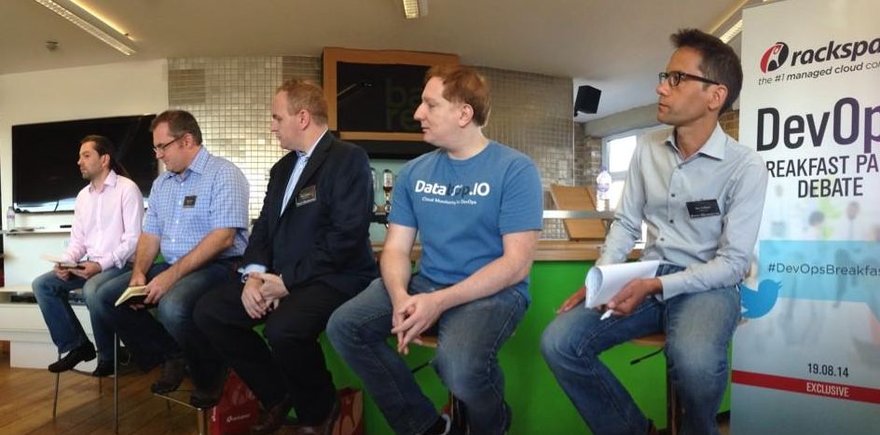According to recent Rackspace research, 84% of IT decision makers said they were familiar with the term DevOps, with 71% of those claiming they understand what DevOps is. But like many previous buzzwords DevOps is not yet mainstream.
At a Rackspace DevOps debate held yesterday a panel looked at how to take the confusion out of DevOps and explore what benefits it can bring to a business.
So what is DevOps?
Rackspace’s cloud technologist and head of DevOps practice area Chris Jackson said there are a lot of views around DevOps being the segue between developers and operations with collaboration featuring highly.
“With DevOps in particular, I’m a huge fan of the CALMS acronym,” Jackson said.
CALMS stands for Culture, Automation, Lean Methodology, Metrics and Sharing.
“If I’m seeing those five things in an organization then they’re moving in the right direction and thinking of the right sort things,” Jackson said.
DevOpsGuys co-founder Stephen Thair said one of the key messages that needs to be addressed is that DevOps is an alternative model.
“We still need Operations [Ops] … Ops is a discipline, in the same way Software development is a discipline. Starting a separate DevOps team is creating another silo and missing the point,” Thair said.
The discussion turned to businesses being ‘too scared of change’ with most seeing change as a failure, whereas it should be seen as increased revenue.
A study conducted by technology market researcher Vanson & Bourne and commissioned by Rackspace.
Vanson & Bourne interviewed 100 interviews with IT decision makers in private sector organizations of 1000 or more employees.
The study revealed that 37% of organizations had a DevOps strategy either running a live project or using accepted DevOps processes.
Of those interviewed that said they did not have a DevOps strategy 47% said the biggest reason was that there were more urgent financial priorities.
And 16% of those interviewed did not know if their organization had a DevOps strategy in place.
“Most commercial businesses get to the middle of November and they refuse to touch any of their applications because it’s the peak period for them,” Thair said.
“But why not change one little thing at a time if it can benefit them during that period?”
Dataloop.io founder and CTO Steven Acreman said that we’re still stuck in the old days and it’s easy to get blinkered.
“A good way to begin DevOps adoption is for the operations team to build and provide a self-service deployment capability for the development teams to use,” Acreman said.
“This frees up operations to focus on valuable activities.”
Skelton Thatcher co-founder and principal consultant Matthew Skelton said that businesses need to understand that modern software systems must evolve over time.
Skelton said DevOps should encourage the flow of metric-based intelligence back to developers from production.
“Organizations making the switch to DevOps should take a small non-critical but valuable software app or service and apply the DevOps approach to it,” Skelton said.
Jackson said Rackspace has customers who want to make the switch to DevOps but just don’t know how to get around it.
“DevOps is Paradise Island and it’s surrounded by lava. Customers want help around that lava,” Jackson said.
The panel mutually agreed on businesses needing a ‘why’ for moving to DevOps, stating there needs to be enough drive behind it.
Jackson admitted there is a problem with finding the right talent for DevOps at the moment.
“The right skills just don’t seem to be there at the moment.” Jackson said.
Thair agreed and added: “if you’re a systems administrator and you cannot script code, then your job is at risk.”
“The future is automation”.

